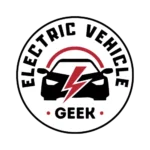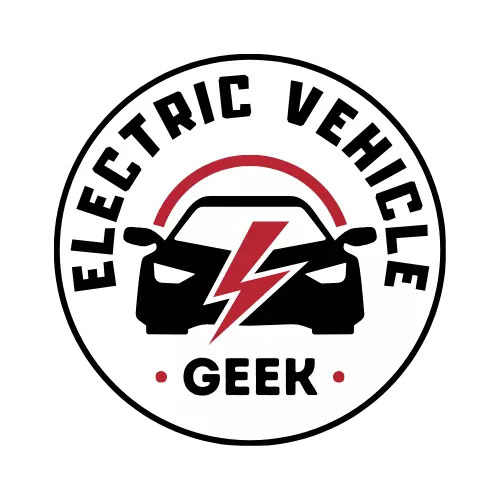EV Chargers Safety Guidelines
Electric Vehicle Geek provides in-depth technical details about EV chargers, including discussions about internal components and electrical systems operating at high voltage. Opening or tampering with EV chargers without proper expertise can be dangerous.
Electric Vehicle Geek Readers should exercise extreme caution and seek professional assistance for internal inspection, installation, or maintenance of EV chargers.
EV chargers operate at high voltages – Level 1 (120V), Level 2 (240V), Level 3 (480V). Do not attempt to handle internal components without the necessary expertise.
Safety Guidelines
This dedicated safety page is designed to provide essential information about the safe usage of EV chargers. Please take a moment to familiarize yourself with the guidelines outlined below.
Purchase an EV Charger With Built-In Protection Features
We highly recommend purchasing an EV charger with built-in safety features like temperature sensors, overcurrent and overvoltage protection, short circuit shutdown, ground fault detection, and surge protection. Smart charging logic adds automatic shutoff and safe restart after faults or power loss, ensuring safe, reliable, and worry-free charging at home.
EV Charger Installation
Always follow manufacturer guidelines for the proper installation of EV chargers. If unsure, consult a certified electrician to ensure a secure setup.
EV Charger Usage
Always use your EV charger according to the manufacturer’s instructions. Before charging for the first time, have a licensed electrician with a current certification inspect your home’s wiring to ensure it’s safe and compatible with EV charging.
Do not attempt to open, modify, or repair the charger yourself, as this can create serious safety risks.
EV chargers transfer a high amount of electrical energy, and improper use can lead to cable damage, electrical hazards, or even fire. We’ve seen cases where charging cables were damaged due to incorrect use or poor setup. Safety should always come first.
Be sure to read your user manual carefully and follow all safety recommendations before using any EV charging product.
Plugging your electric vehicle (EV) into any available charger might seem convenient, but ignoring compatibility can lead to frustration, wasted time, and even damage. Here’s why:
EV Charger Compatibility
Ensuring a safe and efficient EV charging experience starts with understanding compatibility. Each EV and charger operates with specific plug types and charging levels, like keys and locks. Ignoring this crucial aspect can lead to frustration, wasted time, and even damage to your vehicle.
Imagine pulling up to a fast-charging station, eager to get back on the road, only to discover your EV’s plug doesn’t fit the charger. Incompatible connections prevent charging and overload your EV’s electrical system, causing potential damage. Additionally, waiting at a charger that won’t work can be a major waste of time, especially on a long trip.
Read Your EV Manual For EV Charging Guidelines
Don’t rely solely on station labels or guesswork. Your EV’s manual is your bible! It details:
- Supported Charging Levels: Level 1, 2, or 3 compatibility, and any limitations within each level.
- Plug type: Your EV requires a J1772, Tesla Supercharger, CCS, CHAdeMO, or any other specific connector.
- Charging capacity: Maximum power (kW) your EV can handle to avoid overloading.
Become a Research Pro
Before every charging session, especially at public stations
- Identify the available charger type and plug: Check the station clearly for information and compatibility symbols. Don’t be afraid to ask station personnel if needed.
- Consult online resources: To confirm compatibility, use manufacturer websites, charging network apps, or reliable EV information platforms like our Guides on EV Charging. Our EV Charging map can show real-time availability of charger status, a list of reputable EV public stations, and users’ comments on individual Public EV Chargers.
- Don’t rely solely on labels: Double-check online, as station labeling can sometimes be outdated or inaccurate. Better safe than sorry!
Technical Details
We provide detailed discussions on EV chargers’ internal components and electric vehicle branch circuits for those interested in technical insights. However, it’s crucial to note that any exploration beyond the user manual should be left to professionals.
Potential Risks
Opening or tampering with electric vehicle branch circuit components, EV chargers, and EV charging accessories without proper expertise can be dangerous; it may lead to electrical hazards such as electric shocks, fire hazards, etc. To ensure your and others’ safety, always exercise extreme caution and seek professional assistance for any internal inspection, installations, or maintenance of EV chargers.
Not sure if it’s safe? Let a certified EV charger expert guide you.
Get Informed, Stay Safe
At Electric Vehicle Geek, your safety and satisfaction are paramount. That’s why our team is comprised of EV technology experts. They hold industry certifications and continuously stay ahead of the curve by enrolling in top-tier EV technology courses. Additionally, we maintain strong relationships with respected organizations within the electric vehicle sector. This commitment ensures the information you find here is accurate, up-to-date, and comes directly from qualified professionals.
Our commitment to providing trustworthy information extends to citing reputable sources and studies. Every piece of advice we offer is grounded in first-hand experience, product testing, and research, giving you the confidence to trust our recommendations.
We want your EV charging experience to be convenient and secure. Stay informed, follow safety guidelines, and contact professionals for any uncertainties.
Thank you for prioritizing safety with us.
James Ndungu
James Ndungu is a certified EV charger installer with over five years of experience in EVSE selection, permitting, and installation. He holds advanced credentials, including certification from the Electric Vehicle Infrastructure Training Program (EVITP) and specialized training in EV charging systems and installation. He also holds diplomas in EV Technology and the Engineering Fundamentals of Electric Vehicles. Since 2021, James has tested dozens of EV chargers and accessories, providing expert insights into the latest EV charging technologies.

